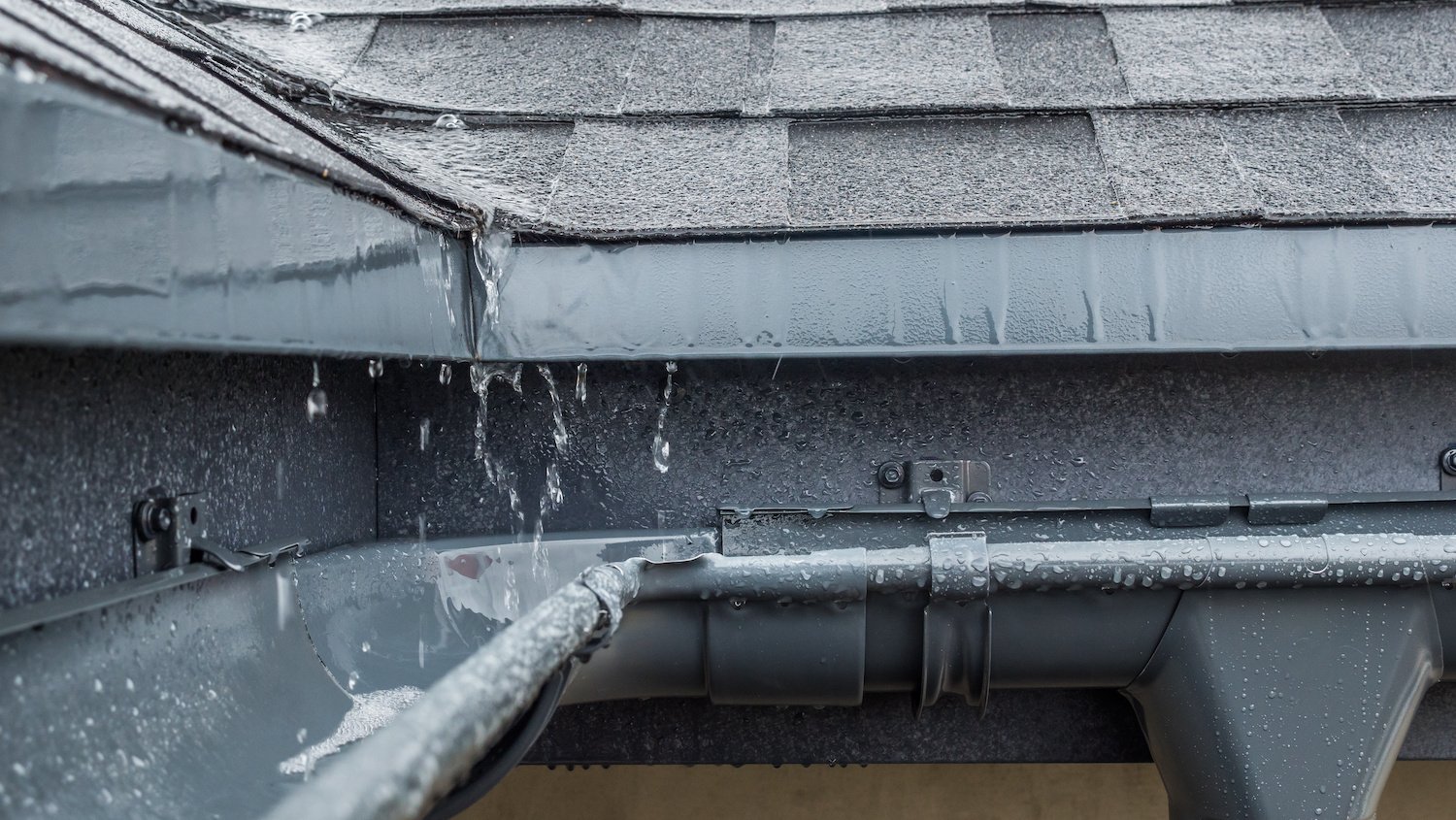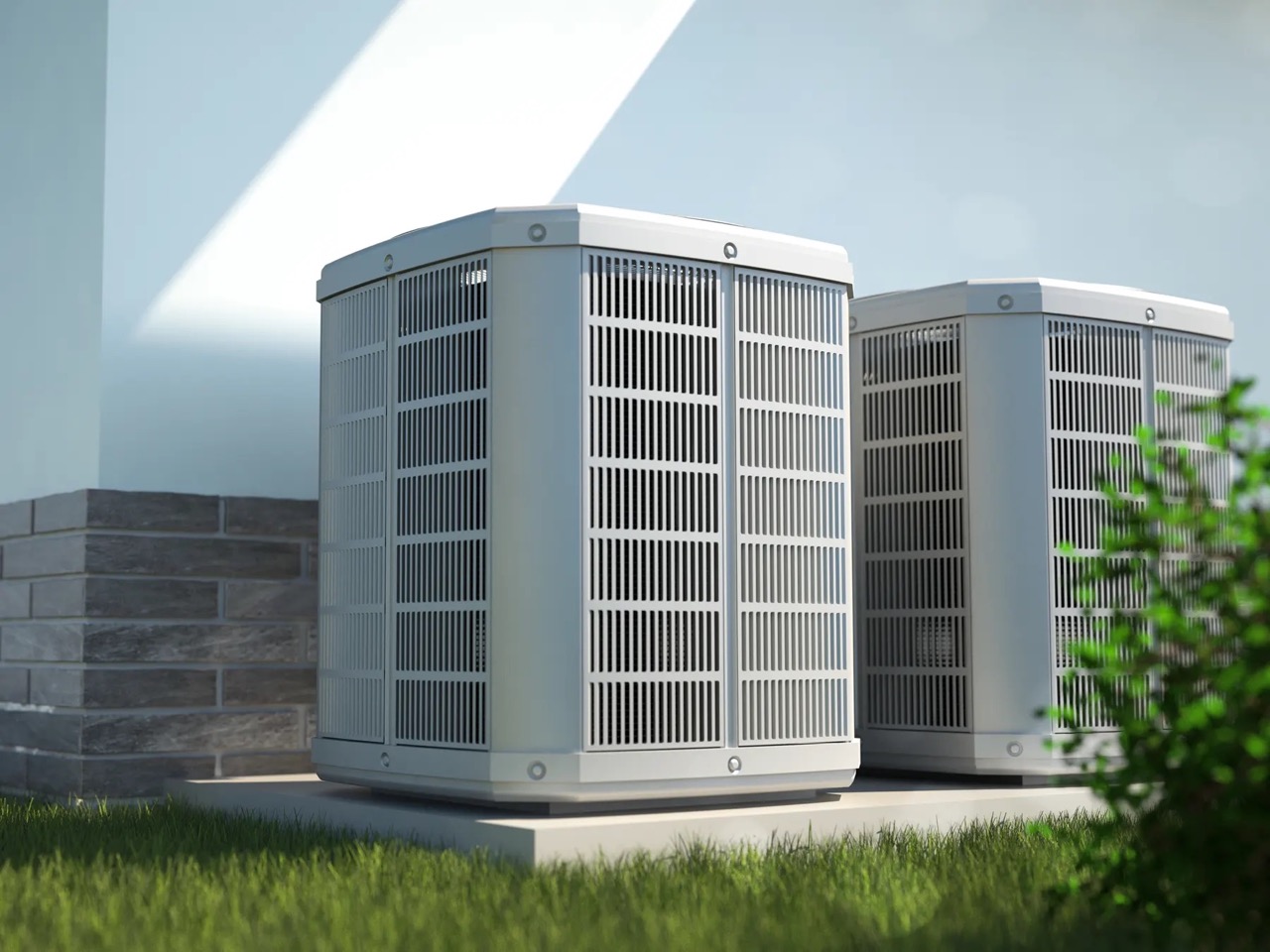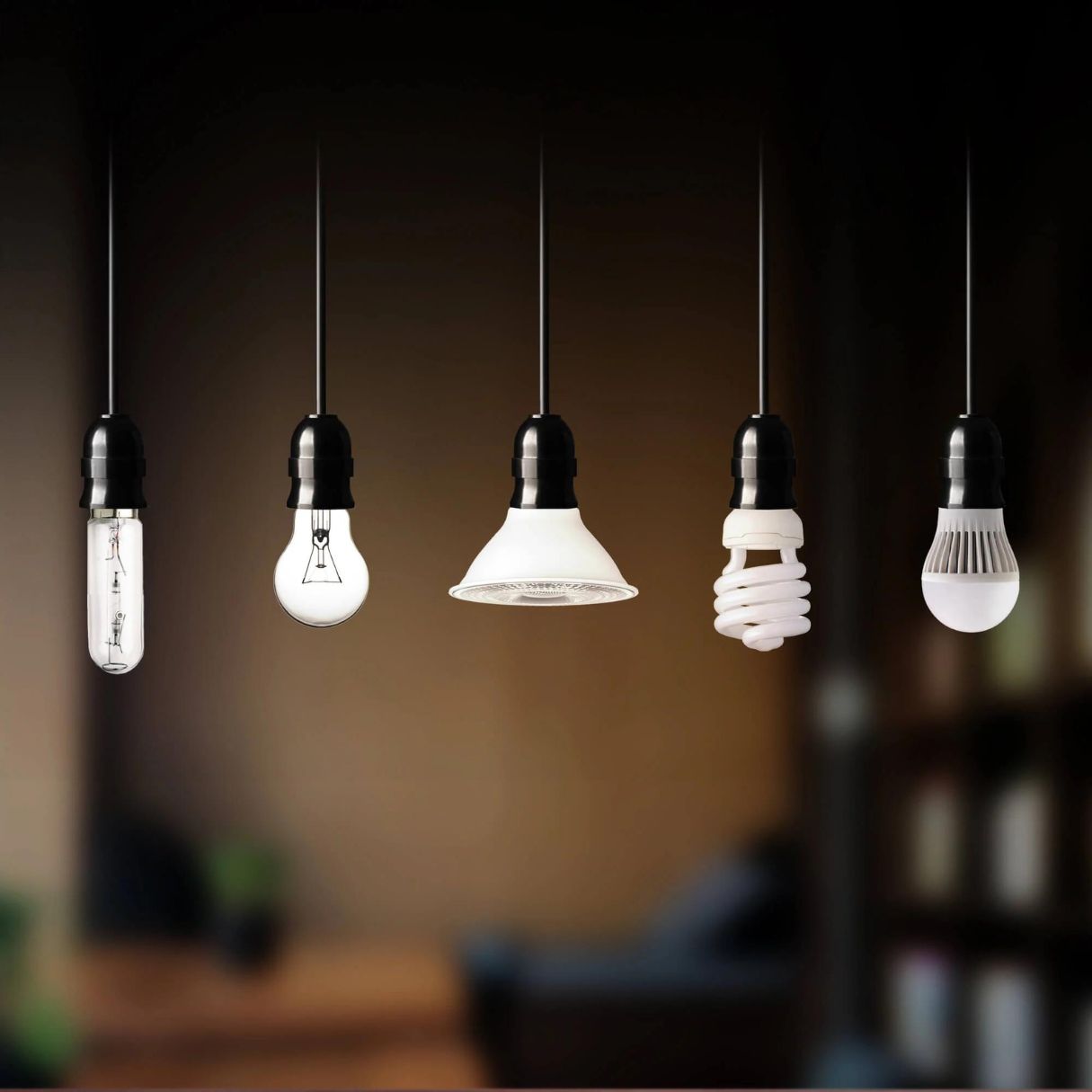

Articles
Why Are Gutters Important
Modified: April 22, 2024
Discover the importance of gutters and how they protect your home from water damage. Read informative articles on why gutters are essential for proper drainage.
(Many of the links in this article redirect to a specific reviewed product. Your purchase of these products through affiliate links helps to generate commission for Storables.com, at no extra cost. Learn more)
Introduction
Gutters might not be the most glamorous part of a house, but they play a crucial role in protecting it from water damage. When it comes to maintaining the structural integrity of your home, gutters are an essential feature that should not be overlooked. They serve as a means of collecting rainwater from the roof and channeling it away from the foundation, safeguarding your property from a variety of potential issues.
In this article, we will explore the importance of gutters and highlight their numerous benefits. From preventing water damage to preserving the aesthetics of your landscaping, gutters are an integral part of any well-maintained home. Understanding their significance can help you make informed decisions about gutter installation and maintenance.
Key Takeaways:
- Gutters are essential for protecting homes from water damage, preserving landscaping, and preventing basement flooding. Regular maintenance and choosing the right gutters are crucial for long-term home protection.
- Properly installed and maintained gutters provide peace of mind, protect the foundation, and enhance the overall value of your home. They play a vital role in preventing water damage, preserving the exterior, and controlling pests.
Read more: Why Is Woodworking Important
What are gutters?
Gutters are narrow channels or troughs that are typically installed along the edges of roofs to collect rainwater and direct it away from the house. They are usually made of materials such as aluminum, steel, copper, or vinyl. Gutters are designed to catch rainwater that runs off the roof and divert it to downspouts, which then guide the water away from the foundation of the house.
The main component of gutters is the gutter trough, which is a long, narrow channel that runs horizontally along the roofline. This trough is sloped slightly to ensure that water flows towards the downspouts. The downspouts, or vertical pipes attached to the gutter trough, carry the water from the gutters down to the ground level and away from the foundation.
Gutters come in various shapes and sizes to accommodate different types of roofs and levels of rainfall. Common gutter shapes include K-style and half-round, with the former being more popular and resembling the letter “K” when viewed from the side. The choice of gutter size and material depends on factors such as the roof size, pitch, and the average amount of rainfall in the area.
Furthermore, gutters can also be equipped with additional features to enhance their functionality. These features include gutter guards or screens to prevent debris, such as leaves and twigs, from clogging the gutters, and gutter extensions to further direct water away from the foundation.
In summary, gutters are a system consisting of troughs and downspouts designed to collect and redirect rainwater away from the house. They play a crucial role in protecting the integrity of a home by preventing water damage and maintaining a safe and stable foundation.
Purpose of Gutters
The primary purpose of gutters is to protect your home from water damage by effectively managing rainwater runoff. Without gutters, rainfall would simply flow off the roof and directly onto the ground surrounding the house. This can lead to a range of issues, including foundation damage, eroded landscaping, basement flooding, and even structural damage.
Here are some key purposes of gutters:
- Preventing water damage: Gutters collect rainwater from the roof and channel it away from the house. This helps prevent water from seeping into the walls, windows, and doors, which can cause rot, mold growth, and other costly water damage.
- Protecting the foundation: By directing rainwater away from the foundation, gutters prevent soil erosion and the formation of cracks in the foundation. Excessive moisture around the foundation can lead to structural instability and costly repairs.
- Preserving the landscaping: Without gutters, heavy rainfall can wash away soil and damage plant beds, flowers, and shrubs around the house. Gutters ensure that rainwater is directed away from the landscaping, preserving its beauty and preventing soil erosion.
- Preventing basement flooding: When rainwater collects near the foundation of a house, it can seep into the basement, causing flooding and moisture-related issues. Gutters play a crucial role in channeling water away from the house, reducing the risk of basement flooding.
- Maintaining the exterior: Water constantly dripping off the roof without gutters can lead to unsightly staining on the walls. Gutters help prevent these stains and keep your home’s exterior clean and well-maintained.
- Reducing erosion: Uncontrolled water runoff from the roof can erode the soil around the house, causing uneven landscapes and potential damage to walkways and driveways. Gutters help control the flow of water, minimizing erosion concerns.
- Preventing mold and mildew: Excess water around the house can create a damp environment, promoting the growth of mold and mildew. By directing water away from the foundation, gutters help maintain a dry and healthy living environment.
- Controlling pests: Standing water around the foundation can attract pests, such as mosquitoes, ants, and termites. Gutters help prevent the accumulation of stagnant water, reducing the risk of pest infestations.
Overall, gutters are essential for protecting your home from potential water-related damages. By effectively managing rainwater runoff, gutters help maintain the integrity of your house, foundation, landscaping, and overall property value.
Benefits of Gutters
Gutters provide a range of benefits for homeowners, helping to protect their investment and ensure the longevity of their homes. Here are some key benefits of having properly installed and maintained gutters:
- Preventing water damage: One of the primary benefits of gutters is their ability to redirect rainwater away from your home’s foundation, walls, windows, and doors. By collecting water from the roof and efficiently channeling it away from the house, gutters help prevent water damage, such as rot, mold, and structural issues.
- Protecting the foundation: When rainwater is not properly managed, it can accumulate near the foundation of a house, causing soil erosion and creating pressure against the foundation walls. This can lead to cracks, shifting, and other foundation issues. Gutters play a crucial role in directing water away from the foundation, protecting its stability.
- Preserving the landscaping: Without gutters, rainfall can wash away soil, damage plant beds, and erode landscaping features such as flowers, shrubs, and trees. Gutters prevent water from overflowing onto landscaped areas, preserving their beauty and integrity.
- Preventing basement flooding: Basement flooding is a common issue for homes without proper gutter systems. When rainwater is not effectively channeled away from the house, it can leak into the basement, causing damage to belongings and creating a breeding ground for mold and mildew. Gutters help prevent basement flooding by diverting water away from the foundation and keeping the basement dry.
- Maintaining the exterior: Gutters help to keep your home’s exterior clean and well-maintained. By directing rainwater away from the walls, they prevent unsightly stains caused by water runoff. This helps to preserve the appearance of your home’s exterior, enhancing its curb appeal and overall value.
- Reducing erosion: Uncontrolled water runoff can lead to soil erosion, which can undermine the stability of your property and cause uneven landscapes. Gutters efficiently manage water flow, reducing erosion concerns and preserving the integrity of walkways, driveways, and other outdoor areas.
- Preventing mold and mildew: Excess moisture around your home can create a conducive environment for mold and mildew growth. By directing water away from the foundation and reducing moisture levels, gutters help prevent mold and mildew issues, protecting the health of your family and maintaining indoor air quality.
- Controlling pests: Stagnant water around the foundation can attract pests such as mosquitoes, ants, and termites. Gutters play a vital role in preventing the accumulation of standing water, reducing the risk of pest infestations and associated damage.
Overall, having gutters installed and properly maintained offers homeowners peace of mind by protecting their home from water damage, preserving the foundation, enhancing curb appeal, and maintaining a healthy living environment. Investing in a quality gutter system is a wise decision that can save homeowners significant repair costs in the long run.
Preventing Water Damage
One of the crucial benefits of having gutters installed on your home is their ability to prevent water damage. Without gutters, rainwater can freely flow off the roof and directly onto the ground surrounding your house. Over time, this can lead to a variety of issues, including rot, mold growth, and structural damage. Gutters effectively manage rainwater runoff, protecting your home and preserving its integrity.
Here are some ways that gutters help prevent water damage:
- Redirecting rainwater: Gutters collect rainwater as it runs off the roof, channeling it into downspouts and safely away from your home’s foundation. This prevents water from pooling or seeping into the walls, windows, and doors, which can cause extensive damage and costly repairs.
- Preventing soil erosion: When rainwater is not properly directed away from your house, it can cause soil erosion around the foundation. This can lead to unstable ground and potential foundation damage. Gutters help control the flow of water, reducing the risk of soil erosion and maintaining the stability of your home’s foundation.
- Avoiding basement leaks: Without gutters, rainwater can accumulate near the foundation and find its way into your basement. This can result in flooding, water damage to belongings, and the growth of mold and mildew. Gutters divert water away from the foundation, preventing basement leaks and keeping your basement dry.
- Protecting siding and paint: When rainwater constantly drips off the roof, it can cause staining and damage to siding and exterior paint. Gutters collect the water, ensuring it is directed away from the walls and preserving the appearance of your home’s exterior.
- Preserving the roof: Excessive water runoff can also damage your roof. Without gutters, water can accumulate and seep into the roofing materials, leading to deterioration and leaks. Gutters help to prevent this by effectively managing and redirecting rainwater away from the roof.
- Mitigating the risk of foundation cracks: Excess moisture around the foundation of your home can cause the soil to expand and contract, resulting in cracks and shifts in the foundation. Gutters minimize the amount of water that reaches the soil around the foundation, reducing the risk of costly foundation repairs.
All in all, gutters are a vital component of your home’s defense against water damage. They play a crucial role in preventing water from infiltrating your home, preserving its structural integrity, and saving you from expensive repairs. By directing rainwater away from vulnerable areas, gutters provide peace of mind and ensure the long-term endurance of your home.
Read more: Why Are Pillows Important
Protecting the Foundation
One of the key benefits of having gutters on your home is their ability to protect the foundation. The foundation is the base on which your house rests, and any damage to it can compromise the structural integrity of your entire home. Improper management of rainwater can lead to soil erosion, foundation cracks, and other costly foundation issues. Gutters play a vital role in safeguarding the foundation of your home.
Here are some ways that gutters protect the foundation:
- Directing water away: Gutters collect rainwater as it runs off the roof and direct it away from the foundation. By having downspouts that extend several feet away from the house, gutters ensure that water is effectively channeled away from the foundation, reducing the risk of water pooling around it.
- Preventing soil erosion: When rainwater is not properly managed, it can lead to soil erosion around the foundation. Over time, this erosion can cause the soil to shift and settle, resulting in foundation cracks and instability. Gutters help control water flow, minimizing erosion and preserving the stability of the soil around the foundation.
- Avoiding foundation leaks: Excessive water around the foundation can lead to water intrusion in basements and crawl spaces, causing leaks and creating a breeding ground for mold and mildew. Gutters channel rainwater away from the foundation, reducing the risk of water seeping into these vulnerable areas.
- Preventing frost heave: In colder climates, the freezing and thawing of water in the soil can lead to a phenomenon known as frost heave. This can cause the foundation to shift, resulting in cracks and structural issues. Gutters help prevent excess moisture from accumulating around the foundation, reducing the likelihood of frost heave.
- Maintaining consistent soil moisture: Properly functioning gutters help to maintain a consistent level of moisture in the soil surrounding the foundation. This is important because excessive moisture or dryness can lead to soil expansion or contraction, which can put stress on the foundation. By managing rainwater runoff, gutters help keep the soil moisture levels in balance.
- Preserving the structural integrity: A strong and stable foundation is crucial for the overall structural integrity of your home. By directing water away from the foundation and protecting it from excess moisture, gutters help maintain the strength and durability of your home’s structure.
By mitigating the effects of water on the soil around the foundation, gutters play a vital role in protecting one of the most crucial components of your home. They help prevent foundation damage, reduce the risk of cracks and settlement, and ensure the long-term stability and longevity of your house.
Preserving the Landscaping
Gutters not only protect the foundation of your home but also play a significant role in preserving the landscaping around your property. Landscaping adds beauty and value to your home, and it is essential to keep it in good condition. Improper water management can lead to soil erosion, damaged plant beds, and a loss of vegetation. Gutters help prevent these issues and maintain the aesthetics of your outdoor spaces.
Here are some ways that gutters preserve the landscaping:
- Preventing soil erosion: Without gutters, rainwater can wash away soil from areas around your house, including flower beds, gardens, and lawns. This erosion not only creates uneven surfaces but can also expose plant roots, making them vulnerable to damage. Gutters collect rainwater from your roof and direct it away from the landscaping, reducing the risk of soil erosion.
- Protecting plant beds and flowers: Excess water runoff can drown plants and flowers, causing them to wilt or die. Gutters help prevent overwatering by redirecting rainwater away from plant beds. This allows proper drainage and helps maintain the health and beauty of your landscaping.
- Maintaining the stability of slopes: If your property has slopes or terraces, it is crucial to manage water runoff properly. Without gutters, rainwater can create erosion channels, destabilizing the slopes and potentially damaging any retaining walls. Gutters control the flow of water, preventing erosion and preserving the structural integrity of the slopes.
- Preserving the health of trees and shrubs: Excessive water around the base of trees and shrubs can lead to root rot and other moisture-related issues. Gutters ensure that rainwater is directed away from these plants, maintaining a healthy root system and promoting their growth and vitality.
- Preventing damage from water splash: When rainwater falls directly from the roof to the ground, it can create splashes that can dislodge mulch, scatter rocks, and damage delicate plants. Gutters collect the water and redirect it into downspouts, preventing the forceful impact of water on your landscaping.
- Preserving the aesthetics: Well-maintained gutters help preserve the appearance of your home’s exterior. By preventing water runoff and stains on the walls, gutters contribute to keeping the entire property visually appealing, enhancing curb appeal, and maintaining the value of your home.
Gutters play a significant role in protecting and preserving the landscaping around your home. By controlling water runoff and managing soil moisture levels, gutters help prevent erosion, maintain the health of plants, and keep your outdoor spaces beautiful and vibrant.
Preventing Basement Flooding
Basement flooding can be a homeowner’s worst nightmare, leading to costly repairs, damage to belongings, and potential health hazards. Gutters play a crucial role in preventing basement flooding by effectively managing rainwater runoff and keeping water away from the foundation of your home.
Here’s how gutters help prevent basement flooding:
- Diverting water away from the foundation: Gutters collect rainwater from your roof and channel it into downspouts. These downspouts then direct the water away from the foundation and into an area where it can safely drain, such as a storm drain or a designated runoff area. By directing water away from the foundation, gutters prevent excess water from seeping into your basement.
- Reducing hydrostatic pressure: Hydrostatic pressure occurs when water builds up around the foundation, exerting pressure that can cause water to seep into the basement. Gutters help alleviate this pressure by redirecting rainwater away from the foundation, reducing the risk of water entering the basement through the walls or floor.
- Preventing overflow: Gutters that are properly sized and maintained can collect a significant amount of rainwater during heavy downpours. This prevents overflow and ensures that the rainwater is directed away from your home instead of pooling around the foundation and potentially entering the basement.
- Keeping basement walls dry: When rainwater is not properly managed, it can seep into the walls of your basement, leading to dampness, mold growth, and damage to the structure. Gutters help prevent this by redirecting water away from the foundation, keeping the basement walls dry and reducing the risk of water-related issues.
- Preventing sump pump overload: If you have a sump pump in your basement, gutters can help prevent excessive water from entering the sump pit. This reduces the strain on the pump and lowers the risk of the pump becoming overwhelmed during heavy rainfall, increasing its efficiency and prolonging its lifespan.
- Mitigating the risk of sewer backup: In areas with combined sewer systems, heavy rainfall can overload the sewer lines and cause backups, resulting in basement flooding. Gutters help reduce the amount of water entering the sewer system by directing it away from the house, decreasing the likelihood of a sewer backup.
- Promoting a healthier living environment: Basements that experience flooding are prone to mold and mildew growth, which can negatively impact indoor air quality and pose health risks. By preventing basement flooding, gutters help maintain a dry and healthy living environment for you and your family.
Gutters are an essential part of your home’s defense against basement flooding. By properly collecting and directing rainwater away from the foundation, gutters provide peace of mind and ensure that your basement remains dry and protected from the detrimental effects of water.
Regular gutter maintenance is key to preventing water damage to your home. Clean gutters and downspouts regularly to ensure proper water drainage and avoid costly repairs.
Maintaining the Exterior
Gutters play a significant role in maintaining the exterior of your home. They help protect the walls, windows, and doors from water damage and other issues that can arise from uncontrolled rainwater runoff. By directing water away from the exterior surfaces, gutters help preserve the appearance and structural integrity of your home.
Here are some ways that gutters contribute to maintaining the exterior of your home:
- Preventing water stains: When rainwater cascades directly down the walls of your home, it can leave unsightly water stains and streaks. Gutters collect rainwater from the roof and channel it away from the walls, preventing these stains and keeping your home’s exterior clean and visually appealing.
- Preserving paint and siding: Excessive moisture exposure can cause paint to peel and siding materials to warp or deteriorate. Gutters help prevent water from constantly dripping off the roof and onto the exterior surfaces, prolonging the life of your paint and siding and reducing the need for frequent repairs or replacements.
- Protecting windows and doors: Water runoff that flows directly against windows and doors can cause damage to the frames, sills, and seals. This can lead to drafts, leaks, and increased energy costs. By directing water away from these vulnerable areas, gutters help protect the windows and doors, extending their lifespan and ensuring proper function.
- Preserving architectural details: If your home features decorative architectural elements, such as trims, moldings, or intricate facades, gutters play a vital role in maintaining their integrity. By preventing water from continuously dripping on these details, gutters help preserve their beauty and prevent water damage or deterioration.
- Preventing rot and decay: When water constantly drips or accumulates near the exterior walls, it can lead to rot and decay of the underlying materials. Gutters effectively channel water away from the walls, reducing the risk of moisture-related issues and ensuring the long-lasting durability of your home’s exterior.
- Reducing the risk of ice dams: In colder climates, ice dams can form on the roof edges when warm air from the attic melts snow, which then refreezes along the cold roof edges. Gutters help prevent ice dams by directing water away from these areas, minimizing the chance of ice accumulation and the potential for roof damage.
- Maintaining the overall curb appeal: A well-maintained exterior enhances the curb appeal and value of your home. By ensuring that the exterior surfaces remain clean, free from water stains, and in good condition, gutters contribute to an overall visually appealing appearance and leave a positive impression.
Properly installed and maintained gutters are essential for maintaining the exterior of your home. By preventing water damage, protecting windows and doors, preserving architectural details, and reducing the risk of rot and decay, gutters help keep your home’s exterior in great shape for years to come.
Read more: Why Insulation Is Important
Reducing Erosion
Gutters are an effective tool in reducing erosion around your home. Erosion occurs when soil is moved or displaced by the force of water. Without proper water management, heavy rainfall can cause erosion and lead to uneven landscapes, exposed roots, and damage to your property. Gutters play a crucial role in controlling water runoff, minimizing erosion, and preserving the stability of your outdoor areas.
Here’s how gutters help reduce erosion:
- Controlling water flow: Gutters collect rainwater as it runs off the roof and direct it into downspouts, allowing you to control the flow of water. By guiding water away from vulnerable areas, such as slopes or uneven terrain, gutters prevent the forceful impact of water, reducing erosion concerns.
- Preserving soil structure: Erosion can disrupt the soil structure, leading to soil loss and nutrient depletion. Gutters prevent excessive water runoff, ensuring that the soil retains its composition and nutrients, which is essential for maintaining a healthy landscape and promoting plant growth.
- Protecting plant beds and gardens: Uncontrolled water runoff can damage plant beds and gardens, washing away soil and exposing plant roots. Gutters help prevent this by collecting and redirecting rainwater away from these areas, reducing the risk of erosion and allowing your plants to thrive.
- Preserving walkways and driveways: Excessive water runoff from rainfall can cause erosion and damage to walkways and driveways. This can result in uneven surfaces and potential safety hazards. Gutters ensure that rainwater is diverted away from these paved areas, minimizing the risk of erosion and preserving the integrity of your paths and driveways.
- Protecting retaining walls and hardscapes: Retaining walls and hardscape features, such as stone or brick walls and patios, are susceptible to damage from water runoff. Without proper management, water can accumulate behind retaining walls, causing soil erosion and compromising their stability. Gutters help prevent this by directing rainwater away from these structures, reducing erosion and protecting their integrity.
- Preventing gully formation: When water is not appropriately managed, it can create channels or gullies in the soil, leading to severe erosion. Gutters effectively channel rainwater away from vulnerable areas, preventing the formation of gullies and preserving the aesthetics and functionality of your outdoor spaces.
- Maintaining a level lawn: Erosion can cause uneven terrain in your lawn, making mowing and maintenance challenging. Gutters help prevent soil erosion, allowing for a more level lawn surface and facilitating proper lawn care practices.
Gutters are a valuable tool in reducing erosion and preserving the stability of your outdoor areas. By controlling water runoff, protecting plant beds and gardens, preserving walkways and driveways, and preventing gully formation, gutters help maintain the integrity of your landscape and prevent soil loss.
Preventing Mold and Mildew
Gutters are an important defense against mold and mildew growth around your home. Mold and mildew thrive in moist environments, and when water is not properly managed, it can lead to excessive moisture accumulation, creating a conducive environment for these fungi to grow. Properly installed and maintained gutters play a critical role in preventing mold and mildew by effectively managing rainwater runoff and reducing excess moisture around the foundation and exterior surfaces of your home.
Here’s how gutters help prevent mold and mildew:
- Redirecting water away from the foundation: Gutters collect rainwater from the roof and direct it away from the foundation of your home. By preventing water from accumulating near the foundation, gutters help reduce moisture levels, limiting the opportunities for mold and mildew growth.
- Preventing water intrusion: When rainwater is not properly managed, it can seep into the walls, windows, and doors of your home. This can lead to dampness, condensation, and increased humidity levels, creating an environment in which mold and mildew can thrive. Gutters channel water away from these vulnerable areas, reducing the risk of water intrusion and subsequent mold growth.
- Reducing humidity levels: Excessive moisture in the air can contribute to high humidity levels indoors, creating optimal conditions for mold and mildew to grow. By effectively managing rainwater runoff and preventing excess moisture from accumulating near the foundation, gutters help reduce indoor humidity and discourage mold and mildew growth.
- Maintaining a dry basement: Basement areas are particularly susceptible to mold and mildew growth due to their cool and damp nature. Gutters play a crucial role in preventing basement flooding by directing rainwater away from the foundation, minimizing the risk of excess moisture and reducing the likelihood of mold and mildew development in this area of your home.
- Preserving dry crawlspaces: Crawlspaces can also be susceptible to mold and mildew growth, especially when moisture seeps in from the surrounding soil. Properly functioning gutters help prevent excessive moisture, reducing the chances of mold and mildew growth in crawlspaces and promoting a healthier living environment.
- Avoiding roof leaks: A leaking roof can introduce water into your attic, which can lead to mold growth if left unaddressed. Gutters help prevent roof leaks by collecting rainwater and directing it away from the roof, reducing the risk of water infiltration and minimizing the chances of mold and mildew growth in the attic.
- Promoting overall ventilation: By preventing water accumulation and reducing excess moisture, gutters contribute to improved ventilation around your home. Good ventilation helps to minimize humidity levels and create an environment less favorable for mold and mildew spores to thrive.
By effectively managing rainwater runoff and reducing moisture levels, gutters help create an environment less conducive to mold and mildew growth. By preventing water intrusion, maintaining a dry basement and crawlspace, and promoting overall ventilation, gutters play a critical role in protecting the health of your home and its occupants.
Controlling Pests
Gutters are more than just a means of directing rainwater away from your home; they also play a role in controlling pests. Standing water around the foundation can attract a variety of pests, including mosquitoes, ants, termites, and other unwanted critters. By properly managing rainwater runoff, gutters help reduce stagnation and minimize the conditions that pests are attracted to, creating a less inviting environment for these pests.
Here’s how gutters help in controlling pests:
- Preventing standing water: Gutters collect rainwater and direct it away from the foundation, minimizing the opportunity for standing water to accumulate. Stagnant water is an ideal breeding ground for mosquitoes, which can transmit diseases. By reducing standing water, gutters help control mosquito populations around your home.
- Mitigating the risk of termite infestation: Termites are attracted to moisture, and excessive moisture around your home can make it more susceptible to termite infestation. Gutters that effectively manage rainwater runoff can help reduce moisture levels near the foundation, making your home less attractive to termites.
- Discouraging ant colonies: Ants are drawn to moisture, and allowing water to accumulate around your home can attract them. By channeling water away from the foundation, gutters help create a drier environment that is less conducive to ant infestations.
- Preventing other pests: Other pests, such as cockroaches and centipedes, are also attracted to damp environments. By controlling water runoff and minimizing excess moisture, gutters help create an environment that is less appealing to these pests, reducing their likelihood of congregating around your home.
- Protecting your outdoor living space: If you have outdoor living spaces or patio areas, gutters can help prevent water accumulation in these areas. By redirecting rainwater away from these spaces, gutters reduce the chances of pooling water, which can attract pests and detract from your enjoyment of the outdoor area.
- Preserving your landscaping: Pests, such as aphids and other insects, can be attracted to overly damp or waterlogged soil, causing damage to your landscaping. Properly functioning gutters help prevent soil oversaturation by directing rainwater away from plant beds and gardens, keeping the soil at an optimal moisture level and reducing the risk of pest infestations.
By effectively managing rainwater runoff and minimizing excess moisture, gutters contribute to pest control around your home. Whether it’s keeping mosquitoes at bay, discouraging termite infestations, or preventing other pests from gathering in moist areas, gutters play a crucial role in creating a less inviting environment for pests and helping to maintain a pest-free home.
Choosing the Right Gutters
When it comes to selecting gutters for your home, there are several factors to consider to ensure you choose the right ones that meet your specific needs. Gutters not only serve a functional purpose but also contribute to the overall aesthetics of your home’s exterior. Here are some key considerations to help guide you in choosing the right gutters:
- Material: Gutters come in various materials, each with its own advantages and considerations. Common gutter materials include aluminum, steel, copper, and vinyl. Aluminum gutters are popular due to their affordability, durability, and resistance to corrosion. Steel gutters are sturdy and can withstand harsh weather conditions, but they may require regular maintenance to prevent rust. Copper gutters offer a beautiful and distinctive appearance but come at a higher cost. Vinyl gutters are lightweight, easy to install, and low-maintenance.
- Style: Gutters come in different shapes, with the most common options being K-style and half-round. K-style gutters resemble the letter “K” when seen from the side and are more popular due to their ability to handle a larger volume of rainwater. Half-round gutters have a rounded shape and are often chosen for their traditional and elegant aesthetic appeal.
- Size: The size of your gutters will depend on factors such as the roof area, the pitch of the roof, and the average amount of rainfall in your area. Larger gutters are generally recommended for areas with heavy rainfall to ensure proper water management and prevent overflow.
- Color: Consider the color of the gutters to complement or contrast with the exterior of your home. This can enhance the overall curb appeal and aesthetics of your property.
- Installation and maintenance: Consider the ease of installation and maintenance when choosing gutters. Some materials may require professional installation, while others can be easily installed as a DIY project. Additionally, consider the maintenance requirements of the gutter material. For example, vinyl gutters are low-maintenance, while copper gutters may require more upkeep to maintain their appearance.
- Gutter guards: Gutter guards or screens can be a valuable addition to your gutter system. They help prevent debris, such as leaves, twigs, and pests, from clogging the gutters and causing water overflow. Gutter guards can reduce the frequency of gutter cleaning and enhance the efficiency of your gutter system.
- Budget: Consider your budget when selecting gutters. The material, style, and additional features will impact the cost. It’s important to choose gutters that strike a balance between quality, functionality, and affordability.
It’s advisable to consult with professionals or experienced contractors to help you determine the most suitable gutter options for your specific home and needs. They can assess factors such as roof size, pitch, average rainfall, and local climate considerations to recommend the optimal gutter system for your property.
Choosing the right gutters is crucial for effective water management, maintaining the aesthetics of your home, and protecting its foundation. By considering factors such as material, style, size, color, installation, and budget, you can make an informed decision and ensure you select gutters that will serve your home well for years to come.
Read more: Why Plumbing Is Important
Maintaining Gutters
Maintaining your gutters is essential to ensure they continue to function properly and protect your home from water damage. Regular maintenance helps prevent clogs, leaks, and other issues that can compromise the effectiveness of your gutter system. Here are some important tips for maintaining your gutters:
- Regular cleaning: Gutters should be cleaned at least twice a year, typically in the spring and fall. Remove leaves, twigs, and other debris that may have accumulated in the gutter troughs and downspouts. Use a sturdy ladder and gloves to protect your hands during the cleaning process.
- Inspect for damage: During your cleaning routine, inspect your gutters for any signs of damage, such as cracks, holes, or loose sections. Replace or repair damaged parts promptly to ensure proper functioning. Pay extra attention to gutter joints, downspouts, and end caps, as these areas are prone to leaks.
- Check for proper slope: Make sure your gutters have a slight slope towards the downspouts to facilitate proper water flow. Use a level to check the slope and adjust as necessary. A lack of slope can cause water to pool in the gutters, leading to overflow and potential water damage.
- Keep downspouts clear: Ensure that the downspouts are clear of clogs or obstructions. This can be done by using a plumber’s snake or a strong jet of water to flush out any debris. Downspouts should extend several feet away from the foundation to direct water away from your home.
- Install gutter guards: Consider installing gutter guards or screens to prevent debris from entering and clogging your gutters. Gutter guards help minimize the amount of maintenance required and ensure that water can flow freely through the gutter system.
- Trim overhanging branches: Overhanging branches can deposit a significant amount of leaves and debris into your gutters. Trim any branches that hang over or near your roof to reduce the amount of debris that can fall into your gutters.
- Monitor for leaks: After cleaning your gutters, run water through them using a garden hose to check for any leaks or misalignment. Repair any leaks promptly to prevent water from damaging your home’s exterior or foundation.
- Inspect for proper drainage: After a rainfall, inspect your gutters and downspouts to ensure they are effectively channeling water away from your home’s foundation. Standing water or pooling near the foundation could indicate a drainage issue that needs to be addressed.
- Consider professional maintenance: If you’re unable to safely clean or maintain your gutters on your own, consider hiring a professional gutter cleaning and maintenance service. Professionals have the expertise and equipment to thoroughly clean and inspect your gutters, ensuring optimal performance and longevity.
Regular gutter maintenance is crucial to keep your gutters functioning properly and protect your home from water damage. By following these maintenance tips and addressing any issues promptly, you can ensure that your gutter system remains in good condition and continues to effectively manage rainwater runoff.
Conclusion
Gutters may not always receive the attention they deserve, but their importance in protecting your home cannot be overstated. From preventing water damage to preserving the structural integrity of your property, gutters play a crucial role in maintaining a safe and durable home. By effectively managing rainwater runoff, gutters safeguard your foundation, prevent basement flooding, and preserve the aesthetics of your landscaping. They also help control pests, reduce erosion, and prevent the growth of mold and mildew.
When choosing gutters, consider factors such as material, style, size, and maintenance requirements to ensure they meet your specific needs. Regular maintenance, including cleaning and inspection, is essential to keep your gutters in optimal condition. By addressing any damage or clogs promptly, you can prevent issues that could lead to water damage or compromised functionality.
Gutters are an essential investment in the long-term health and well-being of your home. They provide peace of mind, protecting your property from costly repairs, structural damage, and potential health hazards. Whether it’s the visual appeal of a well-maintained exterior, the protection of your foundation, or the prevention of basement flooding, gutters enhance the overall value and longevity of your home.
So remember, don’t overlook the importance of gutters. Take the time to choose and maintain the right gutter system for your home, ensuring that it remains a reliable defense against water damage and a key component of your home’s overall protection. With well-functioning gutters in place, you can enjoy the peace of mind that comes with knowing your home is safeguarded against water-related issues, allowing you to focus on creating a safe and comfortable living environment for you and your family.
Frequently Asked Questions about Why Are Gutters Important
Was this page helpful?
At Storables.com, we guarantee accurate and reliable information. Our content, validated by Expert Board Contributors, is crafted following stringent Editorial Policies. We're committed to providing you with well-researched, expert-backed insights for all your informational needs.













0 thoughts on “Why Are Gutters Important”